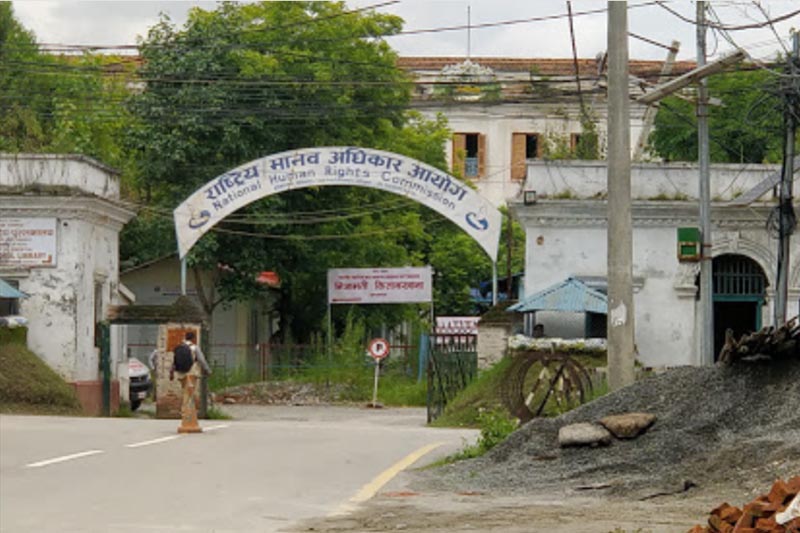Implementation rate dismal, says NHRC
Kathmandu, August 6
The National Human Rights Commission expects rate of implementation of its recommendations by the government to decline further despite the Supreme Court’s ruling that NHRC recommendations are binding.
In the period of 17 years from 2000 to 2017, the NHRC recommended 810 cases of human rights violation to the government for necessary action. Most of its recommendations were related to conflict era (1996-2006) rights violations.
The government fully implemented only 12.5 per cent of the recommendations. The NHRC statistics showed 48 per cent of the cases were partially implemented and 39 per cent of the cases were under consideration. Partial implementation refers to implementing some parts of the recommendation in a case, such as offering relief to victims but not filing criminal case against the perpetrator.
In fiscal year 2017-18, the NHRC made 126 recommendations to the government, but the government is yet to respond to the NHRC regarding implementation of the recommendations. The NHRC expects the number of recommendations to rise to more than 800 for last fiscal year 2018-19, as a report for the year is being prepared.
Mohana Ansari, a NHRC member said since the tenure of the incumbent commissioners would expire in October next year, they aimed to complete and make recommendations on around 4,000 pending cases. “Therefore, the number of recommendations are bound to rise,” she said.
She expected the rate of implementation to decline further given the rise in the number of recommendations. Recommendations to the government by the NHRC are related to various issues such as consumer rights, human trafficking, conflict-era rights violations, torture, murder, rape, abduction and disappearance.
Most of the recommendations are either partially implemented or not implemented. For example, the NHRC made 18 recommendations related to consumer rights till March 2020. But, the government implemented only five recommendations, so far. Most of the recommendations related to conflict-era rights violations were not implemented or they were partially implemented. “Majority of the fully implemented recommendations are related to accused either dead or retired from service,” Ansari said.
The government is reluctant to respond to recommendations by the National Human Rights Commission. Formal channel of communication between the rights body and the government is that the NHRC submits its recommendations to the Office of the Prime Minister and Council of Ministers, which is then forwarded to concerned ministries.
The ministries then forward the recommendations to respective departments and eventually the concerned government staffer. NHRC member Ansari said most of the recommendations never reached the concerned person, and that was the main cause behind the lack of response. “That is why we have also started writing to individuals,” she said, referring to a recommendation related to Tikapur carnage of 2015.
The NHRC had recommended taking action against the CDO of Kailali district holding him responsible for the incident, but the CDO was transferred around five days after the incident. The new CDO replied to the NHRC stating that he had nothing to do with incident.
“Had the Home Ministry coordinated with us, the complication would not have surfaced,” she said, adding that recommendations related to many conflict-era cases were facing similar complications. “There’s a need to put in place an effective channel of communication.” Ansari said since the NHRC had been mandated by the law only to investigate and make recommendations to the government, it was the government’s responsibility to file cases through the office of the Attorney General.
Observers said human rights situation would improve only after the government became accountable and the NHRC played a proactive role in following-up with its recommendations. According to rights activist Chanran Prasai, since the Supreme Court has ruled that NHRC recommendations will be binding, the government must not undermine it.
Prasai said The National Human Rights Commission too seemed to be guided by the notion that its job is done after making recommendation.






